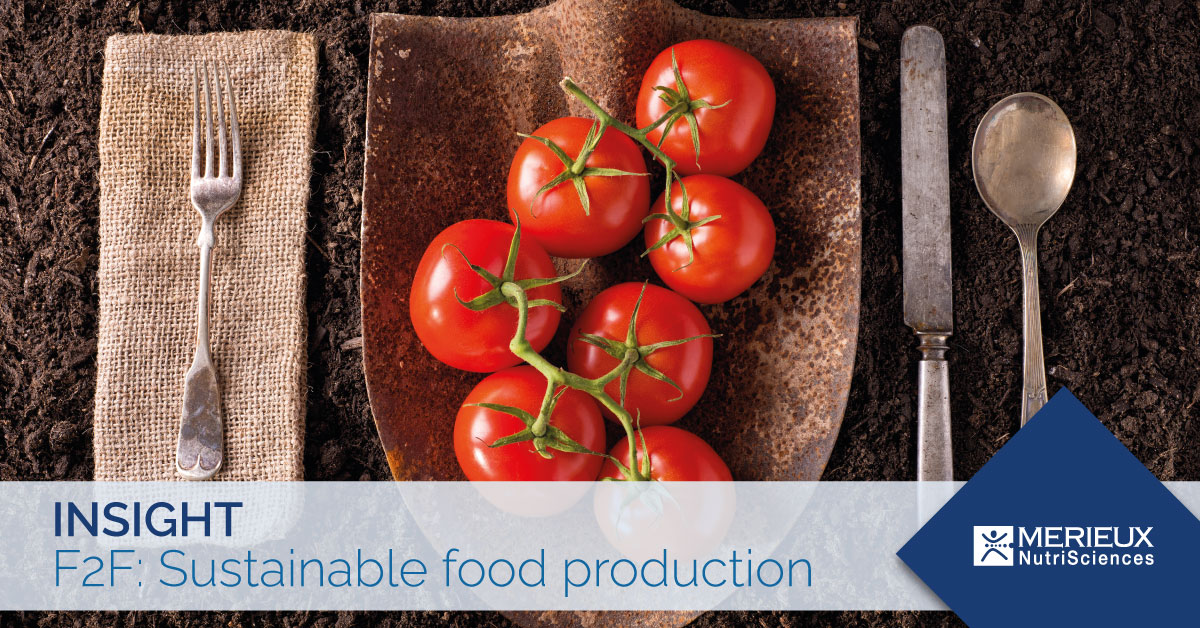"FARM TO FORK" STRATEGY: LEADING TO SUSTAINABLE FOOD PRODUCTION

The "Farm to Fork" initiative is a strategy of the European Community aimed at protecting environmental resources through various actions in the food sector.
THE INITIATIVE
This initiative stems from the awareness that the preservation and renewal of the environment, and consequently the protection of the living conditions of present and future generations, is linked to specific choices that can also be made in the field of agriculture and food.
For the moment, this is just a strategy, which has led to a programmatic document that still has no legal value, but which in future should result in real regulatory measures and which has already identified various operational guidelines, among which the following stand out:
- animal welfare
- the use of clean and renewable energy;
- sustainability;
- plant-based nutrition;
- nutrient profiles.
OPERATIVE GUIDELINES
To summarise the five operational guidelines listed above, a very ambitious framework emerges that, if implemented, should lead to the achievement of the following objectives, already mentioned above and further explained below:
- animal welfare: ensuring more living space on farms, for example by allowing animals to graze outdoors, giving up cages in favour of more spacious environments for birds, adopting more hygiene controls and creating more comfortable environments, and even the objective of excluding or significantly limiting the use of antibiotics, which if abused leads to the formation of pathogenic bacteria that are increasingly resistant to antibiotics
- the use of clean and renewable energy, both to reduce pollutant emissions and to avoid depleting existing energy reserves without allowing them to be renewed, because one of the basic principles of the 'Farm to Fork' strategy is precisely to avoid depleting in the present the resources that will be essential for future generations;
- sustainability, intended as limiting the impact of human activities on the environment, to preserve its vitality and integrity, to avoid resources being consumed faster than they can be renewed, and to avoid creating waste and pollution that the environment cannot assimilate. This is a very broad concept, which also includes the objective of avoiding or limiting the use of plant protection products in agriculture, in the knowledge that they are a serious source of pollution and that the more they are used, the more pests develop resistance to them. The theme of sustainability in the 'Farm to Fork' strategy is also seen, of course for the moment only in perspective, as a way of giving each farm a sort of sustainability 'score', which should be the result of virtuous actions put into practice by the farm itself, such as those aimed at promoting animal welfare, the use of renewable energy, the use of ingredients of predominantly vegetable origin and the production of food with certain nutrient profiles;
- plant-based nutrition: among the various considerations made in the "Farm to Fork" document, there is also the fact that the production of plant-based foods would have less impact on the environment than the production of foods of animal origin. Therefore, one of the objectives of the strategy is to encourage consumers to choose plant-based foods and companies to produce such foods to replace animal-based foods;
- nutrient profiles: This is not a new concept, as it was already introduced in 2006 with EC Regulation No. 1924/2006, where "nutrient profiles" were conceived as a sort of nutritional "identity card" for each food category, defining the standard or minimum or maximum content of calories, fats, carbohydrates, proteins and other nutrients, not least to avoid claiming the presence of a "good" nutrient or the absence of a "bad" nutrient if the other nutritional parameters were not in line with those drawn in the food profile, i.e. if they were worse than the profile. Later the idea was never implemented, and today nutrition claims can be made simply if they fulfil their specific conditions of legitimacy, and without having to consider the entire nutrient profile of a food. But in the "Farm to Fork" strategy, nutrient profiles have been identified as one of the parameters that can be linked to the low or high environmental impact of a food, as the low or high presence of certain nutrients may indicate less or more sustainability. Thus, it is conceivable that in the coming years there will be a move towards the implementation of nutrient profiles, picking up on the intent of 2006.
DEVELOPMENTS
But what are the possible developments of the "Farm to Fork" strategy? Is there a real chance that this strategy will be implemented in the form of real regulatory acts, with a considerable impact on food companies, their production processes, and consequently also on the labelling, presentation and advertising of food products?
Currently, companies that want to promote the adoption of sustainability protocols based on the "Farm to Fork" strategy do so on a voluntary basis, based on their own supply chain organisation in order to be able to prove the truthfulness of what they promise to consumers.
In the future, these activities may become binding, but this depends above all on the ability of the European institutions to impose uniform rules and prevent the particularism of individual member states from prevailing.
Do you want to know how Mèrieux NutriSciences can help you to move your business towards a more sustainable food production? Contact us.

